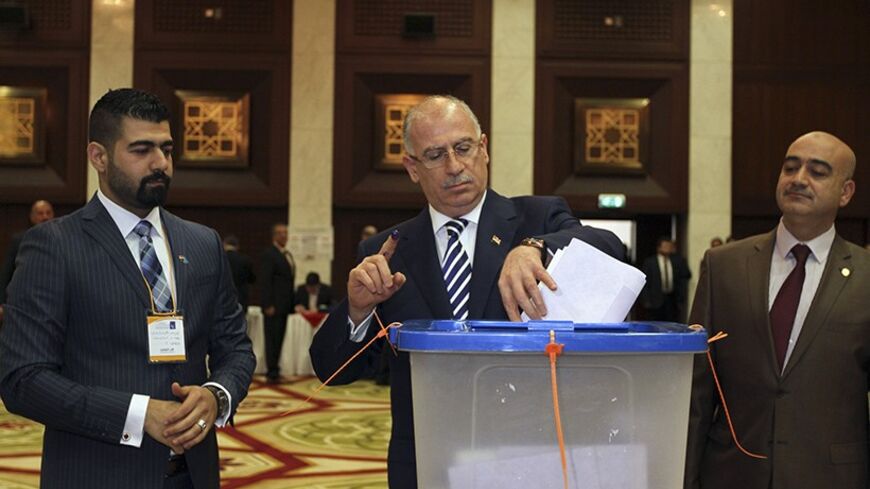The political map of the Sunni forces after the April parliamentary elections seems, at first glance, like an extension of the map before the election, in terms of the weight and influence of the forces. However, what has changed is that the Sunni political forces will be in a more awkward position than ever to describe what alliances they will make to form a government and how they will deal with the promises made before the election.
The election results have not yet been officially announced, and the media generally seem more focused on the Shiite political map than that of other segments. But the information available so far confirms that the Mutahidoun list, led by current parliament Speaker Osama al-Nujaifi, is running ahead of other Sunni forces. Leaks to Al-Monitor suggest that Mutahidoun will have 33 to 35 seats in the next parliament, mostly centered in Mosul, Baghdad, Anbar and Diyala.


